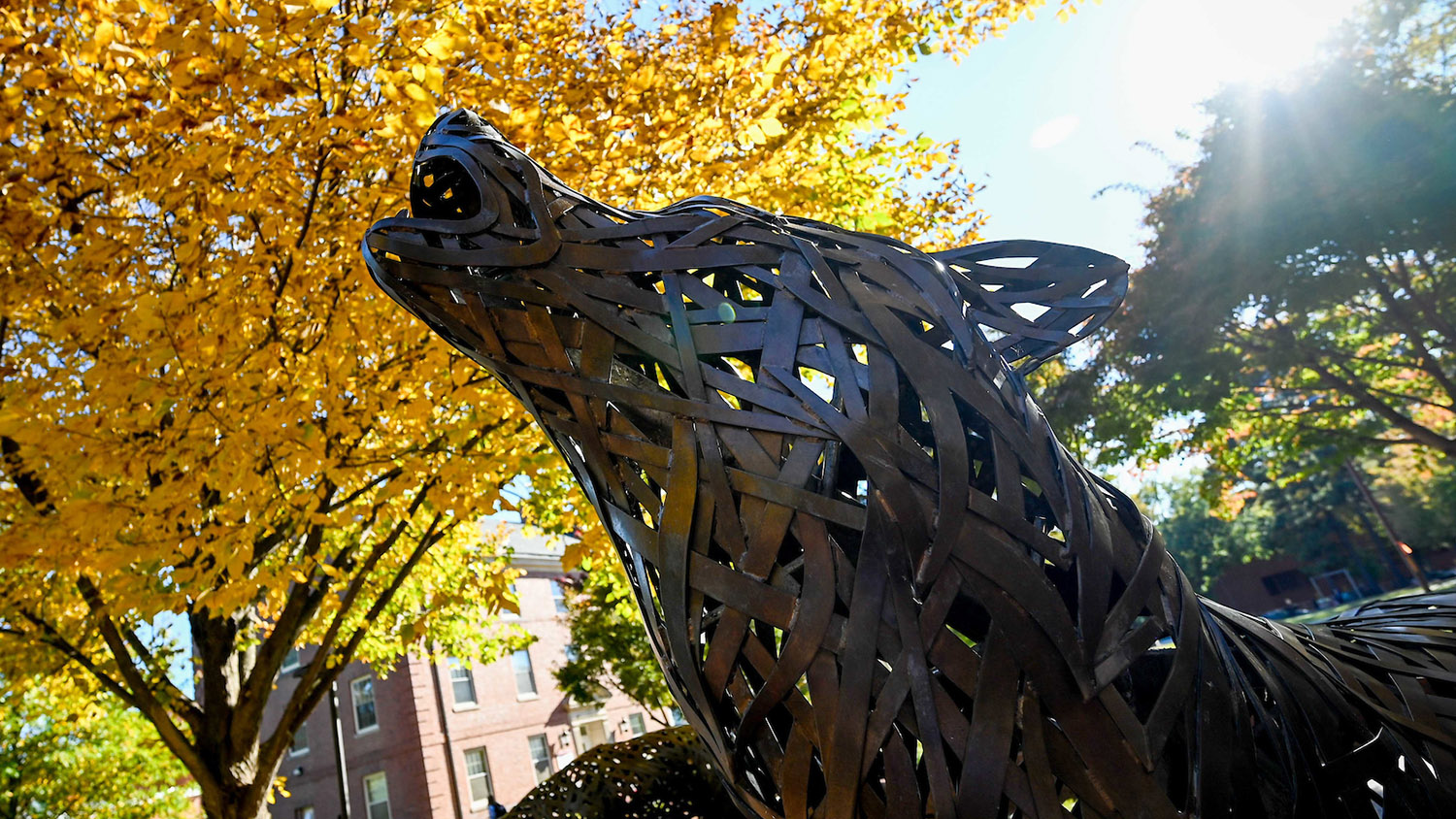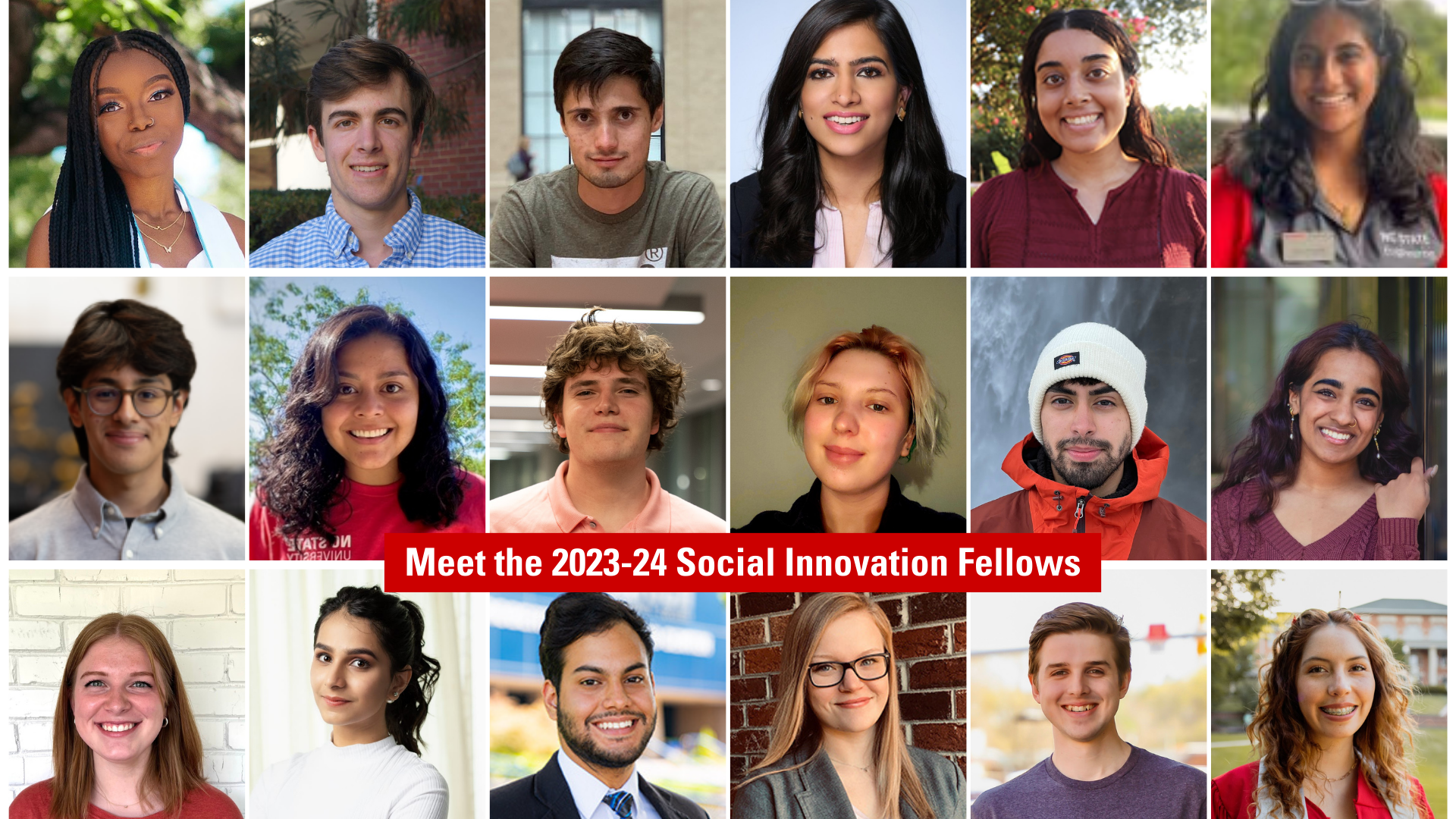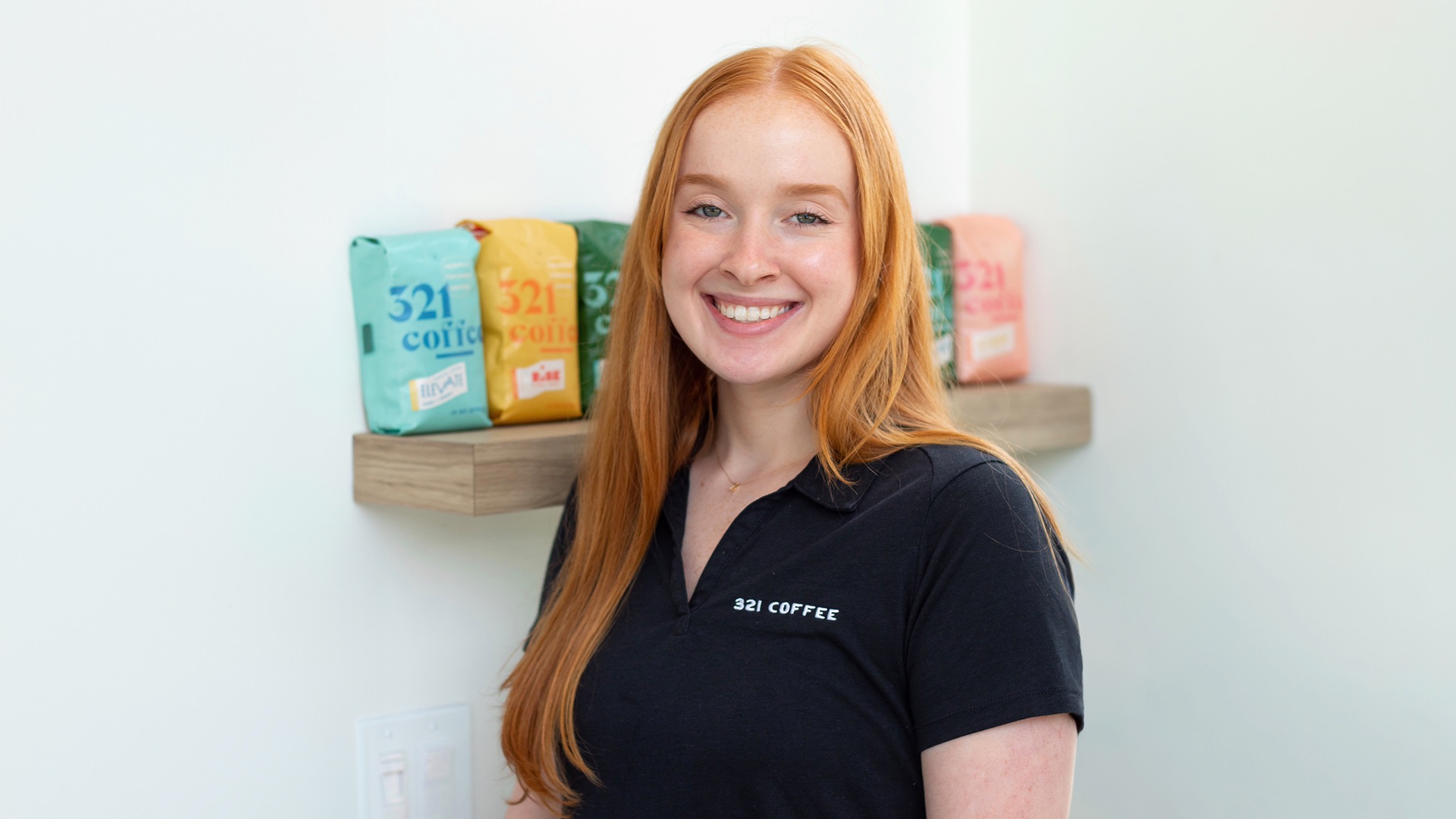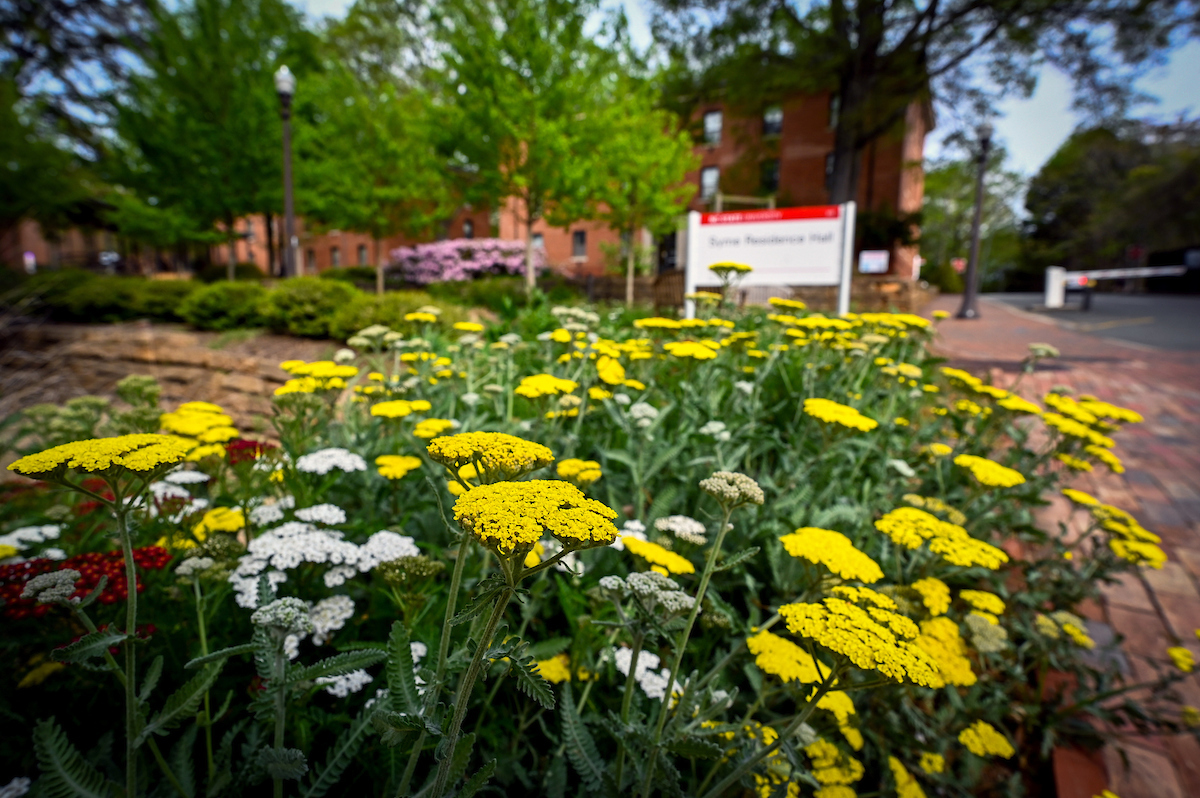On Tuesday, November 30, 2021 the Social Innovation Fellows (SIF) gathered virtually to present what they’ve learned in the fall semester to their peers. Also present were friends and family of the fellows and the program, including Deanna Dannels, Dean of the College of Humanities and Social Sciences, and Clare Jordan, 2021 Humanities and Social Sciences Distinguished Alumna and Chair of the Advisory Committee for NC State Social Innovation and Entrepreneurship (SIE).
In her introduction for the night, Elizabeth Benefield, Program Director, explained the reasons for this tradition of presenting midyear growth, saying, “As is customary, we’re taking a few minutes this evening to present what we’ve learned together, reflect on personal growth and aspirations, and celebrate completion of a semester marked by hard work and, frankly, very impressive dedication.”
Following Benefield’s introduction, Dean Dannels spoke about how proud she is of the fellows and the program.
“[SIF is] a campus leader in offering the students an opportunity to have a learning experience that engages them with the community, that allows you to dive deeply into very complex problems, and that plants a seed for young, passionate changemakers year after year after year,” Dannels said.
Each group was introduced by their mentor and was given time to present the things they had learned thus far, their reflections, and their goals for the following semester. Fellows are still in the “Discover” phase of SIF’s Discover, Design, Do Good framework, and are encouraged to “fall in love with the problem” and deeply understand its intricacies, with the help of their community anchor, before designing a solution in the spring semester.
Goal 2: Zero Hunger – Sankofa Farms
Hattie Altmann, Lacey Malinsky, Tafui Leggard, Talya Suber
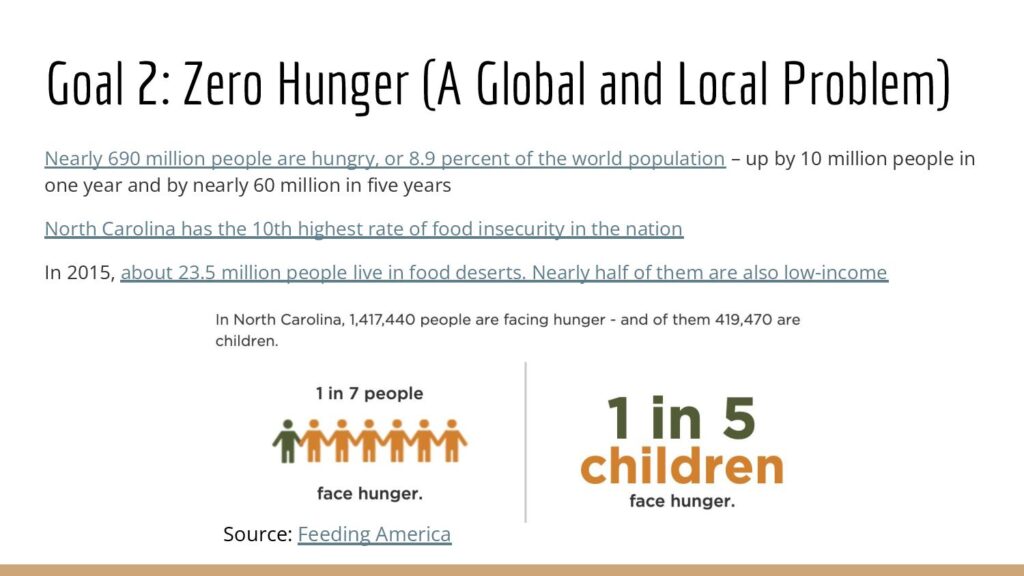
The Zero Hunger team worked to analyze their sustainable development goal (SDG) within the context of North Carolina families. North Carolina has the 10th highest rate of food insecurity in the nation, with 1 in 7 people experiencing food insecurity. The group employed systems thinking and stakeholder mapping to attempt to understand why food insecurity happens.
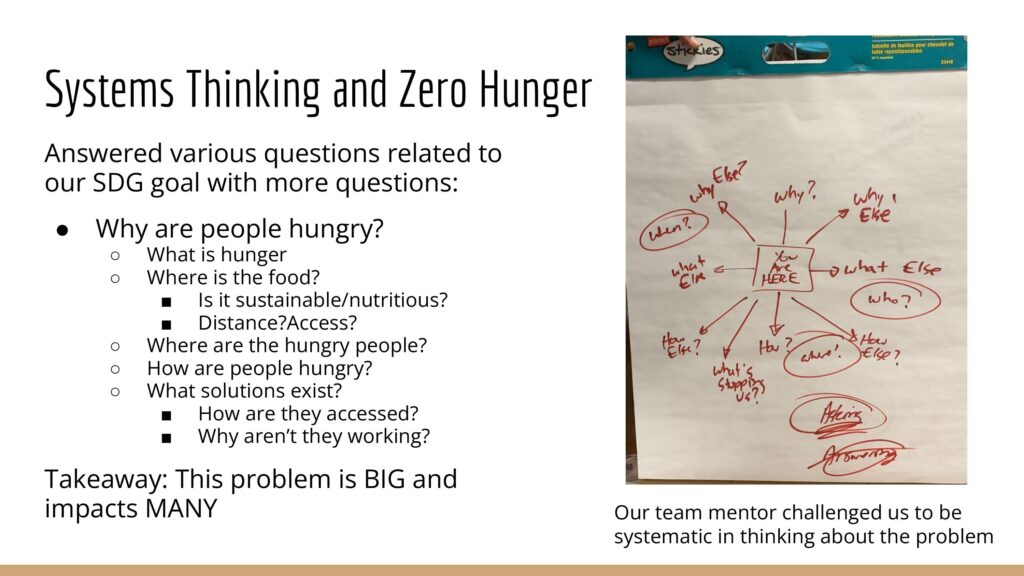
In order to understand their problem, the team interviewed Catholic Parish Outreach Food Pantry and gained a new perspective on waste management, the chain of food distribution, nutrition and health, and informational outreach to clients. Moving forward, the group wants to plan a tour of Sankofa Farms to further expand their perspective of the issue. The group wants to employ human-centered design to address both indirect and direct solutions for food insecurity in North Carolina.
You can watch the Zero Hunger team’s presentation and their introduction by Team Mentor Andrew DiMeo here.
Goal 8: Decent Work and Economic Growth – Karma Wallet
Olivia DeJesus, Vedant Dulori, Shane Fogarty, Grace Gould, Lily Morrell
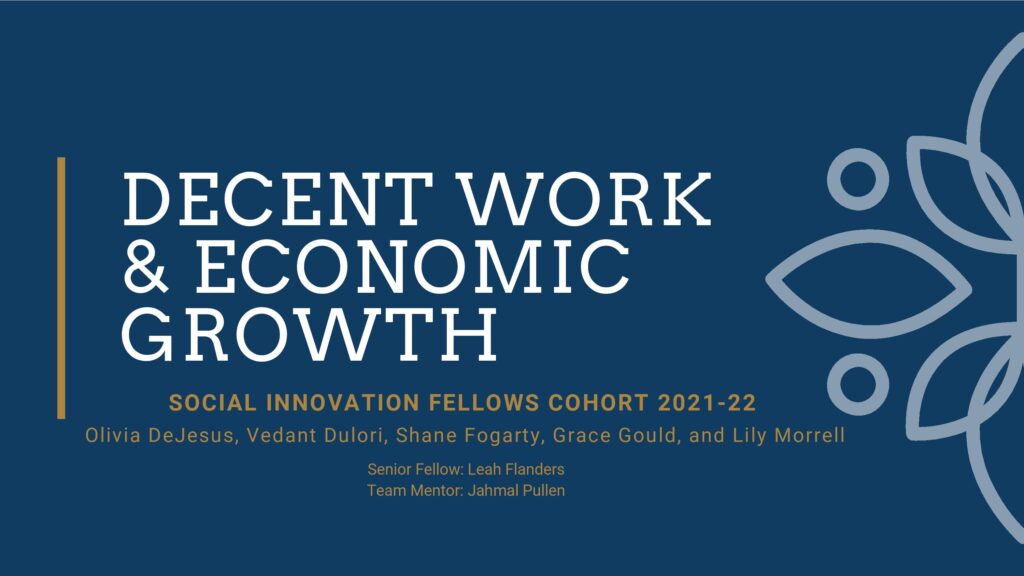
The Decent Work and Economic Growth team divided their goal into two, separating “decent work” and “economic growth” in order to fully comprehend such a broad topic. The group discussed the impact of the COVID-19 pandemic on working conditions and the economy around the globe, including job loss, a majority of which were lost by those in unofficial employment, youth, and women.
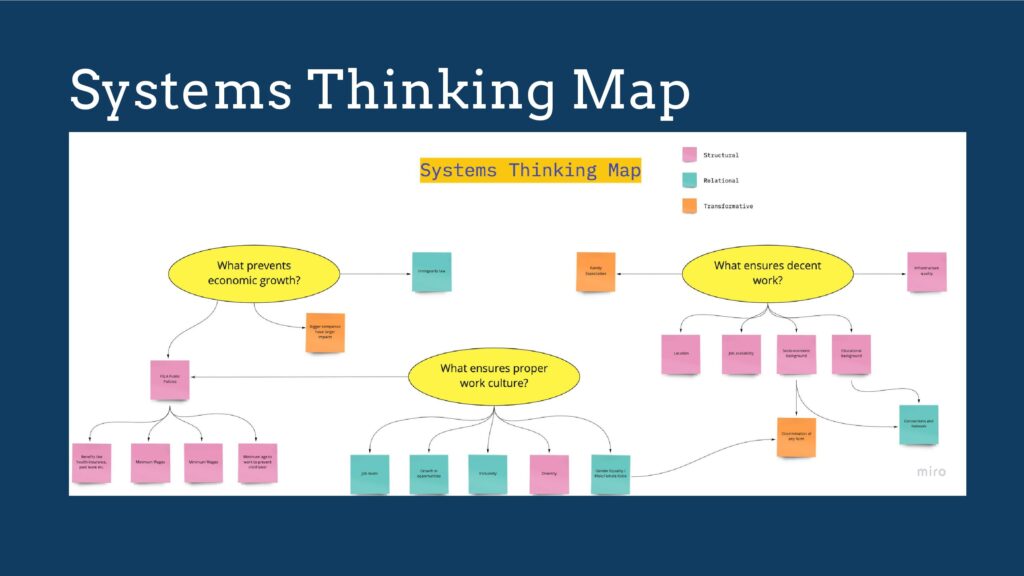
The group combined their systems maps, stakeholder maps, and an interview with Karma Wallet co-founder Jayant Khadilkar to determine four areas that they could possibly address moving forward: Karma Wallet, rating agencies, sustainable businesses, and uninvolved businesses. They have ideas for projects moving forward including potentially incorporating a measure on Karma Wallet that indicates how companies are doing with UNSDG 8 or developing a report that provides details on how companies can better achieve UNSDG 8. However, the team is also keeping their options open for other project ideas.
You can watch the Decent Work and Economic Growth team’s presentation and introduction by Team Mentor Jahmal Pullen here.
Goal 14: Life Below Water – NC Sea Grant
Matt Slaughter, Sindhu Polavaram, Kendall Zorn, Luis Jimenez, Anna Rose
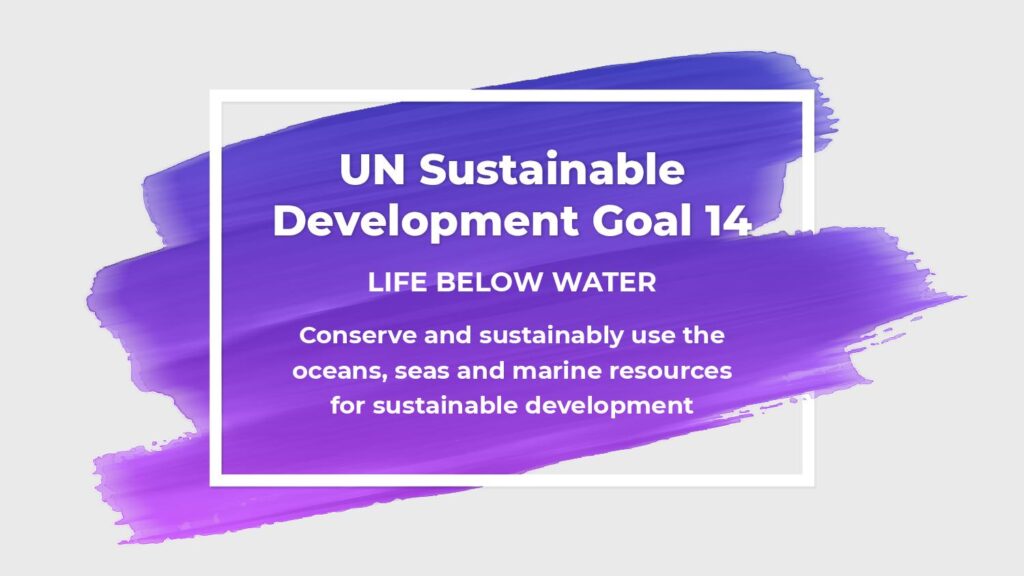
The Life Below Water team noticed that their goal, like all of the others, is an intricate web of actors, systems, and stakeholders. The group worked closely with their community anchor, NC Sea Grant, to help make sense of the chaos and they found a distinct path within the web connecting to NC Sea Grant.
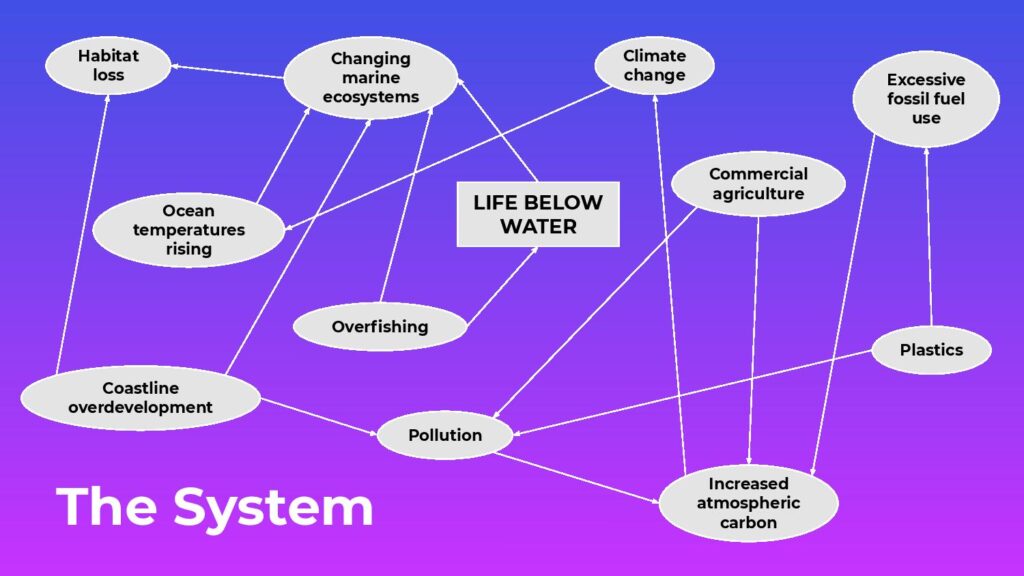
They have closed in on the conservation of fisheries as a main goal for the group moving forward. The group used the empathetic thinking skills they learned this semester to recognize that Indigenous people in North Carolina have historically used sustainable fishing practices and are seeking to potentially work with local Indigenous communities to determine the most appropriate solutions to their problem in the spring semester.
You can watch the Life Below Water team’s presentation and introduction by Team Mentor Brian Speight here.
Goal 7: Affordable and Clean Energy – All We Are
Tatum Kellum, Jenni Mangala, Sarah Smart, Allison Starling
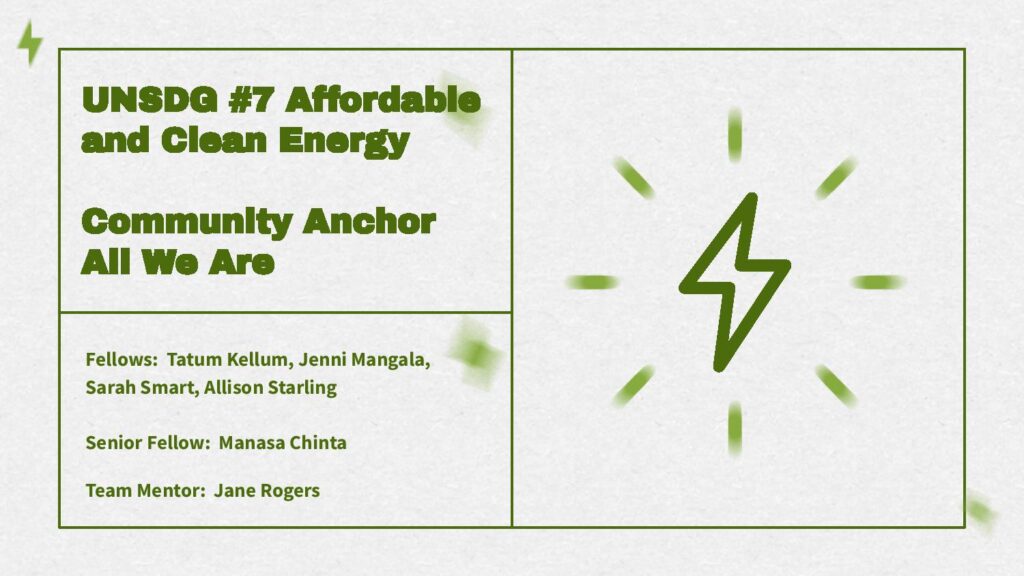
The Affordable and Clean Energy group worked closely with their community anchor, All We Are, to understand their UNSDG in the context of Uganda. In Uganda, 57.4% of people live without access to electricity; All We Are is working to change that by installing solar panels in schools and medical centers across the country.
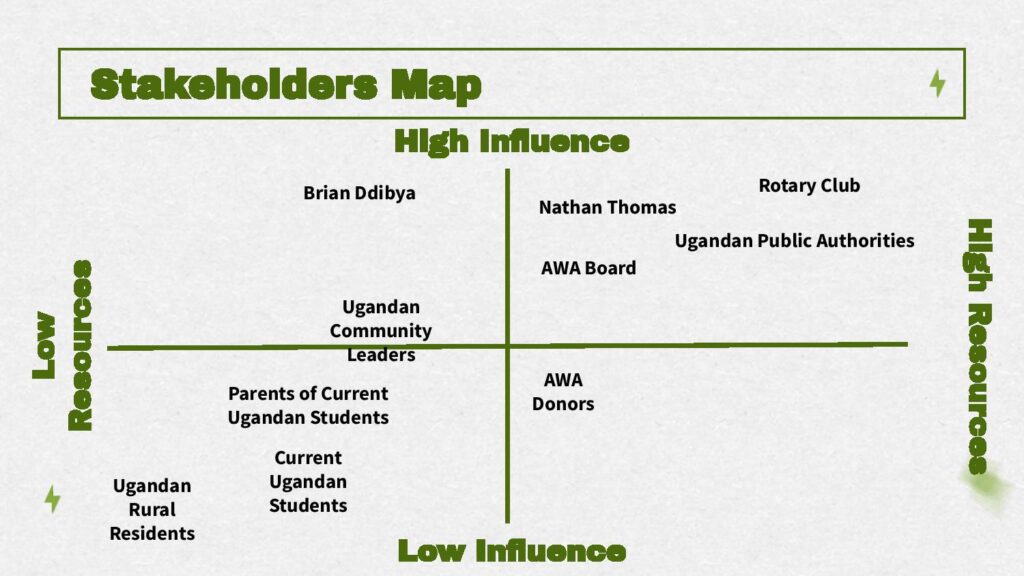
The group decided to map their stakeholders in a way different than any other groups, on an axis of low-to-high resources and low-to-high influence. Here they discovered that stakeholders like the Rotary Club and Ugandan public authorities had high influence and high resources, but stakeholders like Ugandan rural residents had low influence and low resources. The team decided to look into problems that All We Are is facing and look for solutions to those. They hope to explore methods to increase human capital, funding, or employee bandwidth in the upcoming semester.
You can watch the Affordable and Clean Energy team’s presentation and introduction by Team Mentor Jane Rogers here.
Goal 13: Climate Action – NC Interfaith Power & Light
Faisa Aden, Jessica Tran, Lauren Burnham
The Climate Action group, who experienced a semester of struggles, were given a chance to speak openly about those challenges in lieu of a traditional presentation. The team eloquently demonstrated that failure should not be something that is hidden away in the entrepreneurial field. It isn’t important that you failed; it is important how you move forward.
Regardless of their struggles, the team was still able to put together stakeholder and systems maps and meet with both their community anchor and the NC State Sustainability Office, another stakeholder. The SIF team is committed to helping this team pursue and achieve their goals in the upcoming semester.
You can watch the Climate Action team’s presentation and introduction by Team Mentor Miles Wright here.
Goal 12: Responsible Consumption and Production – NC State’s Compost Facility and Research Cooperative
Niambé James, Prathik Velagapudi, Varunya Karthikeyan, Noah Retarides, Zara Pandite
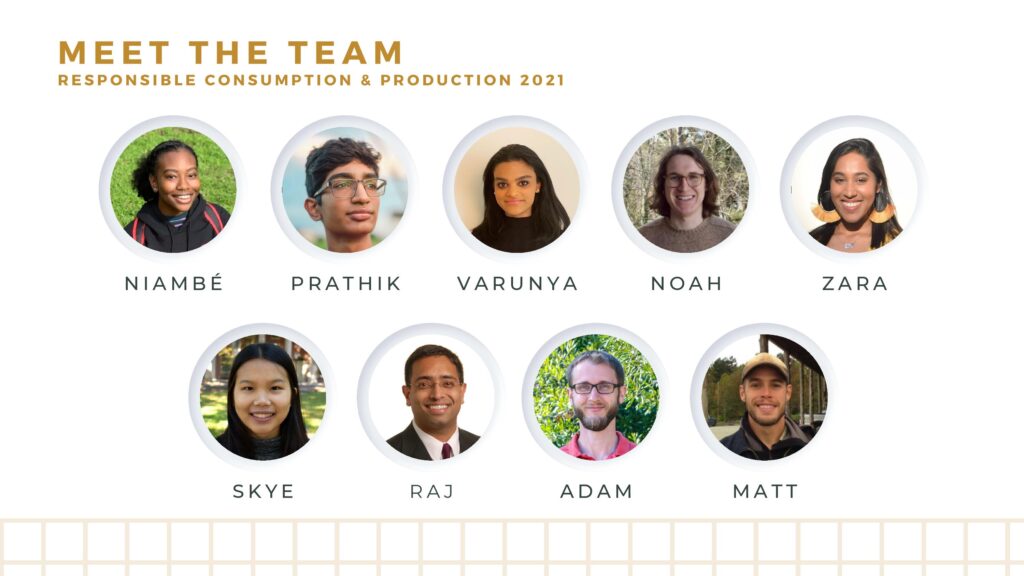
The Responsible Consumption and Production team jumped right into their problem and built a relationship with their community anchor, NC State Compost Facility and Research Cooperative, to map their stakeholders from lowest importance and influence to highest. The group pointed out major hurdles like classism, the plastic economy, greenwashing, and consumerism in their systems map that gave them a bird’s eye view of the problem and its intricate parts.
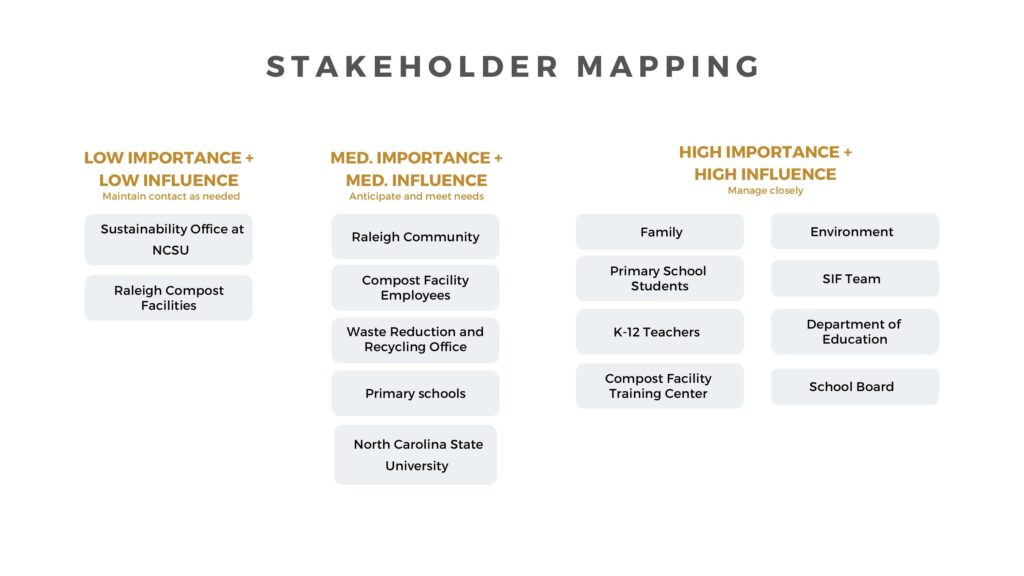
The team has honed in on youth education as a way to upend some of these systems holding the problem in place. In the upcoming semester, they hope to find ways to make composting interesting to elementary age students and create lessons that allow them to understand compost from this young age. However, they also hope to appeal to older generations in order to change habits as well.
You can watch the Responsible Consumption and Production team’s presentation and introduction by Team Mentor Raj Narayan here.
After the presentations, closing remarks were given by Clare Jordan and Alisha Brice, Program Manager for SIE.
“You are the ones who we’re depending on to save us from ourselves. Our sector looks to you for your good ideas and insights and your new perspectives on the world… And what that means a lot of times is struggle. It means there are challenges and it means there are not easy answers, and that’s part of what you are all doing now,” Jordan said.
In the upcoming semester, fellows will enter the “Design” phase where they will work to create solutions to these broad, systemic problems and make an impact in the community. At the end of the spring semester, fellows, friends, and family will come together again to present their achievements throughout the year.
The full recording of the midyear presentations is available on YouTube.
This article was written by Austin Dunlow, who is a 2021-22 Senior Fellow for the Social Innovation Fellows and a member of the 2020-21 SIF cohort. He is a 2021 graduate from NC State’s College of Humanities and Social Sciences with a degree in political science, and is currently a graduate student in international studies.
- Categories:
